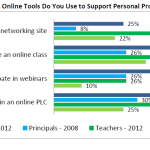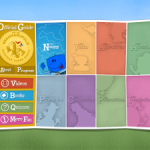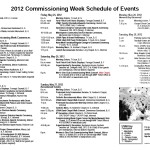July 18, 2015
How to Talk to People Online
 Talking to people online is nothing like in person. Sure, you must do this to build your PLN, but quickly, you realize how much communication is transmitted by body language, pacing in speech, facial expressions–all characteristics that can’t be conveyed with the black-and-white of words. That makes sarcasm challenging. Even humor–how often do you know someone’s being humorous because of their grin, exaggerated expressions, or laugh. None of that comes through online.
Talking to people online is nothing like in person. Sure, you must do this to build your PLN, but quickly, you realize how much communication is transmitted by body language, pacing in speech, facial expressions–all characteristics that can’t be conveyed with the black-and-white of words. That makes sarcasm challenging. Even humor–how often do you know someone’s being humorous because of their grin, exaggerated expressions, or laugh. None of that comes through online.
As a result, online conversations need to be sorted differently than in-person conversations. Consider these quick rules:
- Always consider the perspective of the person you’re talking to. They can be anywhere on the planet, with a world view entirely disparate from yours. Not better or worse, just different, with cultural norms that could make your comments insulting or intimidating (never good when you’re trying to make new friends). Sure, you can’t catch all of those, but you can start by avoiding comments you know could be misunderstood and adding details about your background to provide context to your conversation.
- Be international in your conversations. After all, you’re writing to the world, not your home town. Include international references (like Happy Canada Day on July 1st). That might take research, but that’s fine, especially for writers who hope to sell books in multiple countries.

- Don’t talk politics. Best case, you’ll annoy half of your readers. Few people understand the intricacies of foreign governments (few understand their own rulers). Most people believe the axiom, ‘Better the Devil you know than the Devil you don’t’. Here are two examples:
- Most Americans think our education system is broken but think their local education is great.
- This second is an opinion: While democracies (like America) value freedoms, lots (and lots) of people around the world don’t. They want someone else to make those big decisions for them. They believe having all those choices makes life too complicated. Be sensitive to that.
- Use good grammar and spelling. Lots of people conflate ‘texting’ with ‘online writing’. Not true. Texts are private, not intended for the world to see. Every online communication has the potential to go viral, bad grammar and spelling errors included. As writers, we don’t want to risk that.
- Where weather used to be a safe (albeit boring) topic, it isn’t anymore. Now, it’s political and could blow up into an insult-charged scream-fest about global warming. Don’t talk about the weather. Talk about books instead. Or dogs and children.
I’d love to hear what innocent online conversations you’ve been part of that have become toxic. What should I avoid in the future?
Check out this article from Wikipedia on the ‘online disinhibition effect‘ for an better understanding of online chats. Or this one from Jeffrey Lin on the toxicity of some online games.
–first published on Today’s Author
More on social media:
4 Reasons You Want a PLN and 13 Ways to Build One
Writers Tip #48: Have a Web Presence
27+ Tips I Wish I’d Known About Blogging
15 Tips Picked Up From Twitter
Jacqui Murray is the author of the popular Building a Midshipman, the story of her daughter’s journey from high school to United States Naval Academy. She is the author/editor of dozens of books on integrating tech into education, webmaster for six blogs, an Amazon Vine Voice book reviewer, adjunct professor of technology in education, a columnist for Examiner.com and TeachHUB, Editorial Review Board member for Journal for Computing Teachers, monthly contributor to Today’s Author and a freelance journalist on tech ed topics. You can find her book at her publisher’s website, Structured Learning.






